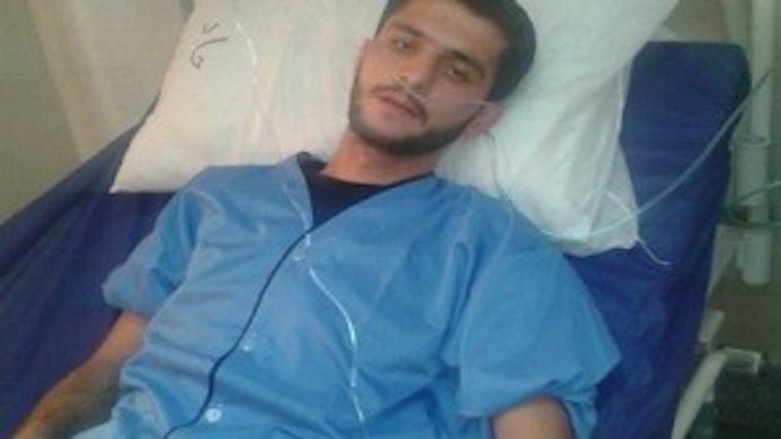Right groups: Sohrabzadeh's life is threatened

LOS ANGELES, United States (Kurdistan24) - Fourteen human rights organizations released a joint statement, expressing deep concern about the dire conditions of a Kurdish political prisoner.
Twenty-four-year-old Afshin Sohrabzadeh, a Kurd serving a 25-year sentence for Moharebeh (enmity against God) in Iran, suffers a life-threatening gastrointestinal condition, exacerbated by prolonged lack of adequate treatment.
Sohrabzadeh went on hunger strike in protest to the lack of proper medical care on Monday, April 11, 2016.
"The right to life is one the most basic rights of every human being. Iran’s Judiciary is causing serious physical harm and even death of prisoners during their imprisonment by ignoring their right of life," the statement said.
Iran is breaking its own laws by denying prisoners like Sohrabzadeh and Mohammad Sediq Kaboudvand proper medical care.
Prison authorities are legally required to protect the health of those in their custody but they have refused to cover the expenses.
Article 113 of Iran’s Prisons Organization Law, adopted on Wednesday, December 14, 2005, states: “Soon after the prisoner feels ill, he or she should inform the prison authorities and should receive referral to use the prison’s infirmary or a related healthcare facility to receive medical care and the necessary medication.”
Sohrabzadeh's family is too poor to afford the medical costs.
Amnesty International (AI), a global human rights network based in the United Kingdom also called on Iran to provide medical care for this prisoner.
Due to Sohrabzadeh's deteriorating health conditions, several requests have been filed with Persecution authorities to let the political prisoner serve his sentence in a province where he can receive medical attention. So far, the appeals have been rejected.
Sohrabzadeh was arrested in 2010 in Kamyaran, Kermanshah Province, and was denied the right to communicate with his family for several weeks.
Sohrabzadeh says he was tortured in that time which fractured his nose and caused a hernia in his abdomen.
"In addition to his gastrointestinal illness, he is also believed to suffer from respiratory, renal and urinary tract health problems, which he says were caused by his torture, and have worsened due to conditions in prison," the AI statement added.
Taimoor Aliassi, the representative to UN of the Association for Human Rights in Kurdistan of Iran-Geneva (KMMK-G), told Kurdistan24 that Iran currently has 1152 political prisoners, 467 of them belong to the Kurdish minority. Out of 93 prisoners sentenced for Moharebeh (enmity against God), 63 of them are Kurds.
“Moreover, 95 percent of secret executions in Iran are taking place in ethnic territories," Aliassi concluded.
Reporting by Ava Homa
Editing by Karzan Sulaivany
